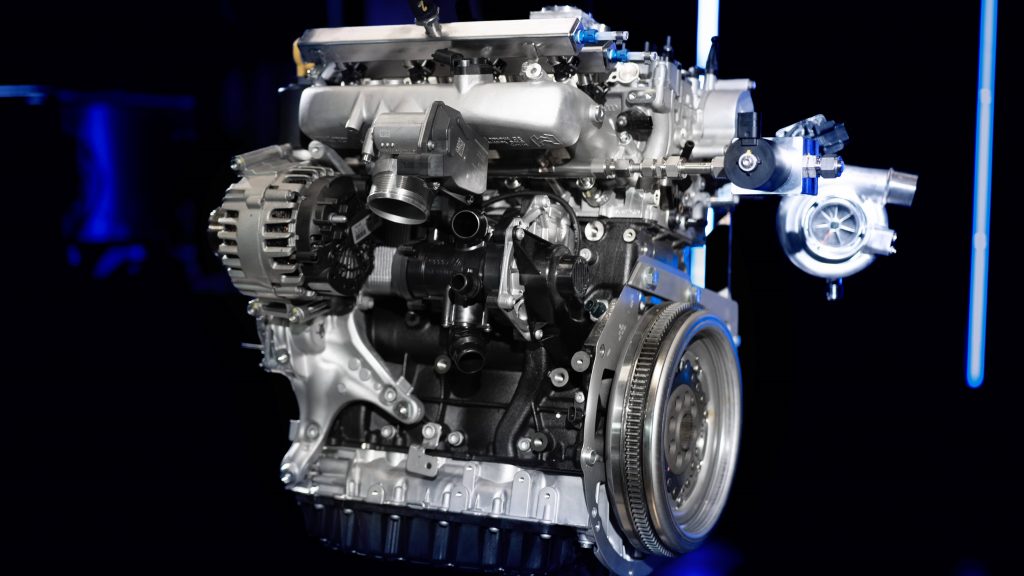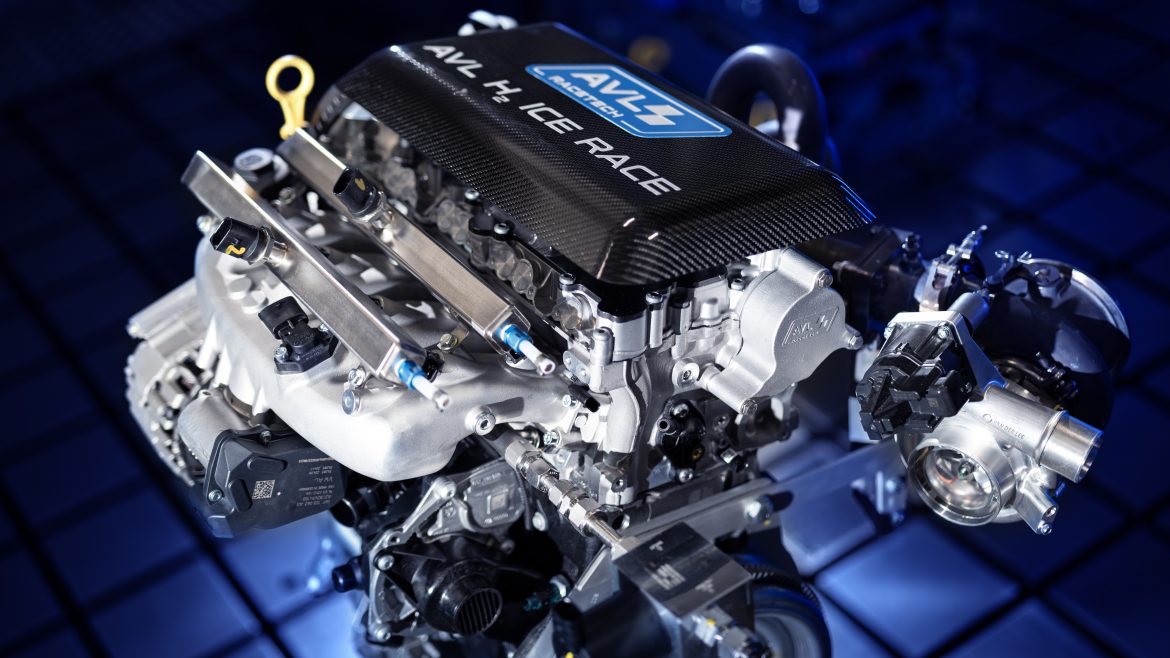In November 2022, AVL Racetech, the motorsport division of AVL, announced a breakthrough in clean propulsion technology. The company announced the development of its first-ever in-house engineered hydrogen-powered internal combustion engine (H₂-ICE) for use in motorsport, a feat the company had achieved for the first time in its 20-year history. The project was undertaken in association with the Hungarian non-profit Humda Lab.
The power unit – a compact, two-litre turbo engine – thanks to its innovative, low level of lean-burn (burning of fuel with an excess of air), makes more power than other hydrogen engines of comparable capacity. Hydrogen internal combustion engines, in general, operate with a high level of lean burn, which limits their performance. To achieve low lean burn, AVL Racetech has used a water injection system, which injects additional water into the engine’s intake air to avoid unwanted premature ignition which can potentially harm the engine. The air-fuel ratio is stoichiometric, or 1:1 (when exactly enough air is provided to completely burn all of the fuel, the ratio is known as the stoichiometric mixture) and the air demand is managed by a wastegate turbocharger.

At the time, AVL claimed their H₂-ICE could develop close to 150kW per litre, which put it in the same league as standard fuel-powered performance internal combustion engines – the 2.0-litre petrol unit in the Mercedes-AMG A 45 S produces 310kW. Now, AVL Racetech has achieved its next milestone on this front.
On one of the engine testbeds modified for the use of hydrogen at the AVL headquarters in Graz, Austria, a prototype of their H₂-ICE achieved a top output figure of 301.7kW (410HP) at 6,500rpm. The maximum torque figure achieved during the test was 500Nm between 3,000-4,000rpm. AVL Racetech claims these figures are very close to their simulated data, which confirms the potential of the engine.
The next development milestone for AVL Racetech will be to test the engine in a car on the racetrack.
Hydrogen & Motorsport
While AVL Racetech is on the right path to achieving clean propulsion in motorsport, it is not the first player in the field. Quite a few others have also dabbled with hydrogen in motorsport. Recently, the HySE (Hydrogen Small mobility & Engine technology) research association announced the participation of Toyota’s hydrogen-powered vehicle, the HySE-X1, in the Mission 1000 Challenge of the 2024 Dakar Rally. Toyota itself has had a few hydrogen-powered vehicles take part in multiple motorsport events, ranging from the Fuji 24 Hours to the World Rally Championship (WRC).



